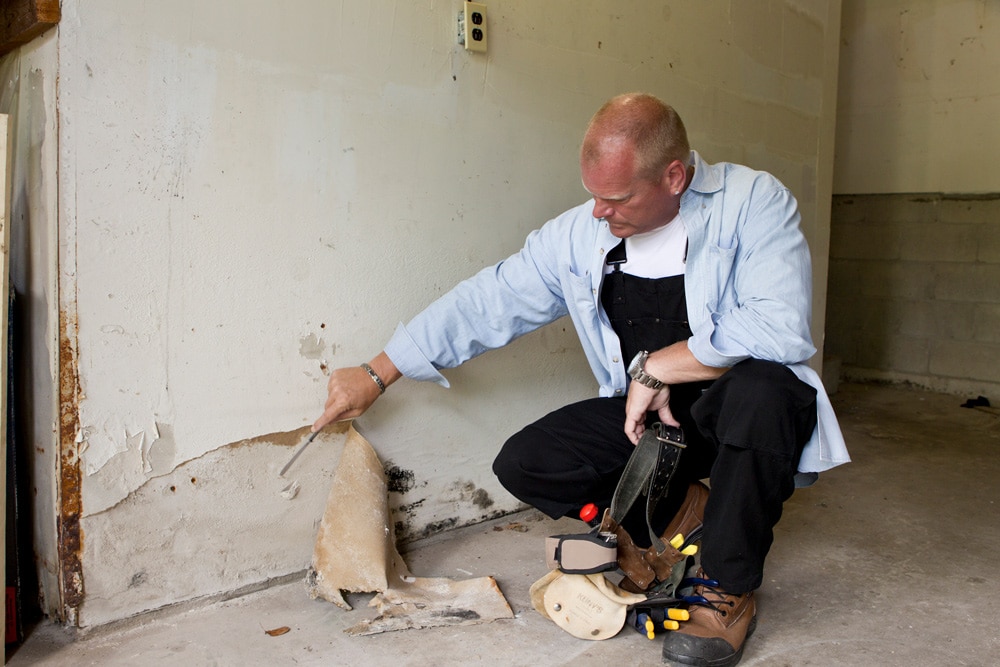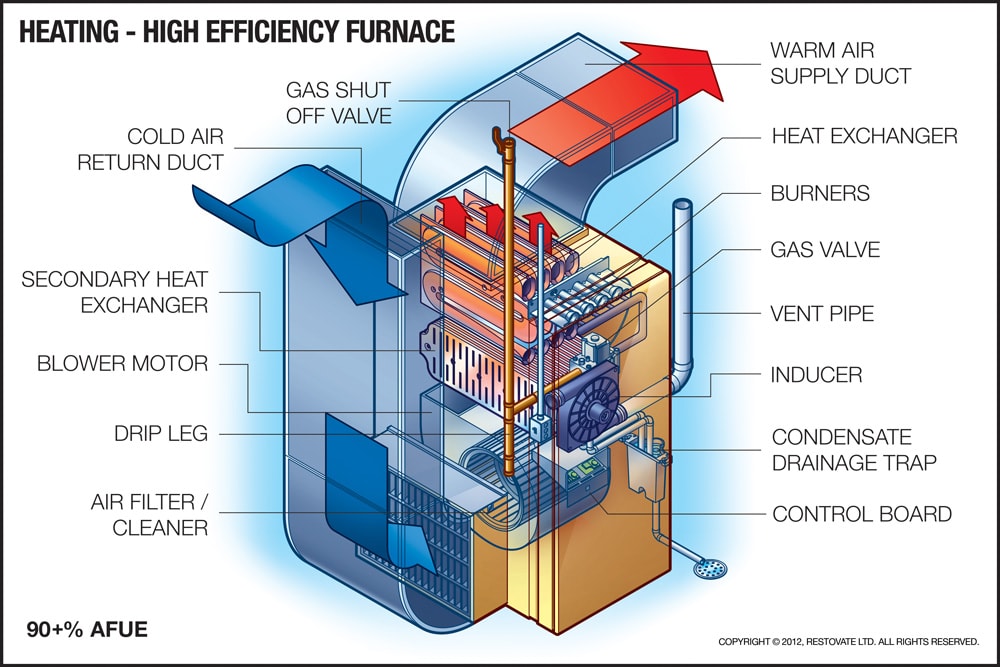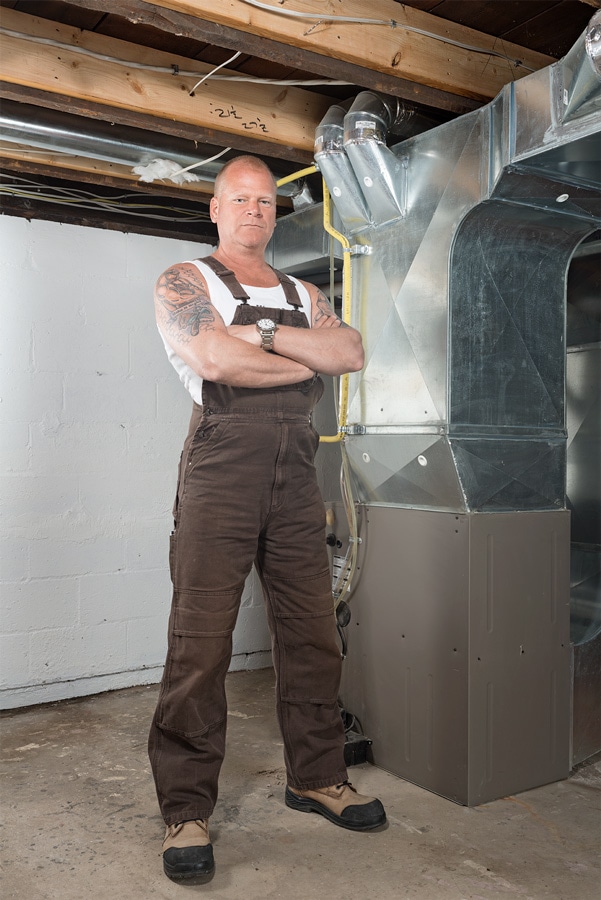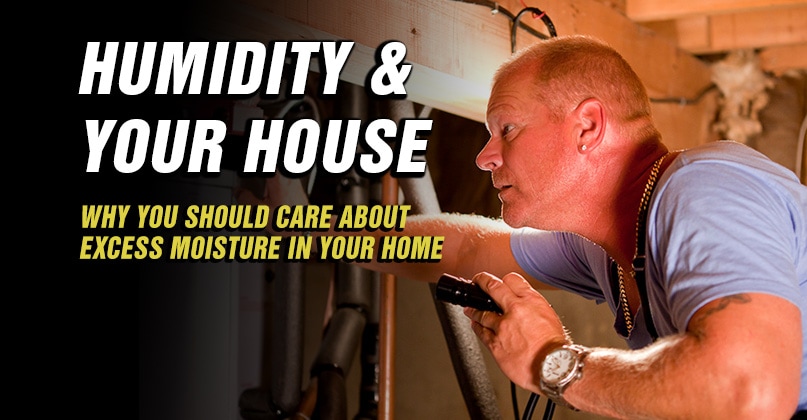I love exploring new technology—especially when it genuinely improves how we work in construction—and I recently came across one that truly impressed me, iGUIDE by Planitar Inc. In my...

Humidity & Your House
By Mike Holmes
Mike’s Advice / Home Safety & Maintenance
Monday, March 18th, 2019 @ 12:11pm
What Is A Good Humidity Level In My House?
You’ve done your research on the best builder in your area. You’ve checked out their work, you have had many, many conversations with them and you know that they believe in using the best materials. They build above minimum code and they build energy efficient, healthy homes. CONGRATULATIONS! Sounds like you bought a home that will last. You’ve made the right investment.
Now it’s up to you to learn how to live in your house. I call this “Own It Right”. Keeping on top of regular home maintenance is important. KNOWING how the systems in your house operate is important. A big part of that is managing humidity levels in the house. The ideal relative humidity for your home is between 40%-60%.
Getting the right balance of moisture in your home can sometimes feel like Goldilocks—it has to be just right. If there’s too much or too little your hardwood floors will tell you. Too much moisture, they’ll start to swell and buckle. Too little, you’ll start to see gaps and cracks.
The Importance of Home Maintenance
When problems start happening in the home most people want to blame something or someone else. ‘Oh, it’s because no one knows how to do anything anymore,’ ‘They used cheap materials,’ ‘They didn’t do this right.’ I’ve said those a few times myself. But sometimes the source of the problem isn’t a bad contractor, sub trade or builder—it might be a little closer to home.

A Home Maintenance will check more than what you see on the surface but what’s happening behind the walls
Nothing lasts forever unless you make sure it does. That means it is your responsibility as a homeowner to understand how the systems in your house work together and ensure you are doing the proper maintenance.

It’s also important to know how your furnace room works.
Ideal Humidity Levels
The right humidity level is important for your overall comfort and your home. Humidity levels between 30-40% are ideal for keeping your home warm and comfortable in the winter. In the summer, the ideal humidity level is between 50-60%.
Measuring Humidity In Your Home
A humidistat lets you monitor and control your home’s humidity level. If you have a humidified on your furnace, your humidistat is likely mounted on there. A humidistat will measure the relative humidity in your indoor air and turn your humidified on or off accordingly.
They look and function a lot like your thermostat, but instead of measuring temperature and making adjustments, humidistats measure relative humidity in the air and turn your humidifier on or off in response. Your furnace may also have a dehumidified function, but most residential furnaces do not. You may need a portable dehumidifier to address high humidity levels.
Do You Need a Dehumidifier?
A dehumidifier helps pull excess moisture out of the air, like a vacuum cleaner. It sucks in air from your home at one end, removing the excess moisture, and blows it back into your home again. The moisture collects into a container that you’ll have to empty from time to time. A dehumidifier is a good idea in the summer, but for winters I recommend installing an ERV (Energy Recovery Ventilator). A dehumidifier also usually only draws moisture out of a specific area, not your full house.
Humidity In A Well-Sealed House
I always say the things you don’t see in a home are more important than the things you do, and by addressing these critical details the moment you decided to purchase your dream home, you have protected your investment—saving you time, trouble and money tomorrow.
Here’s the thing about well-built homes-they are airtight. That’s great for energy efficiency, because a home can lose up to 30% of it’s heat due to drafts. But airtightness also means that although air can’t get in, moisture also can’t get out.
NOTE
You need good air movement in your house for your HVAC system to work. Never block a cold air return with furniture.
TIP: Clean or vacuum the vents and grilles throughout the entire house. It’s not a huge task and has major benefits for your furnace.
Why Should I Care About Excess Moisture?

If the condensation gets inside your walls or attic space that could lead to mildew, mold and rot, which we know isn’t safe or healthy. If the moisture and rot gets into structure, you’re looking at big problems. That’s why you need an efficient air exchange system. HRV units exchange indoor air with fresh outdoor air, and as the indoor air goes out it pre-heats the fresh air coming in.
Read more about your mechanical room here.
Managing Humidity With Your Exhaust Fans
Your kitchen and bathroom exhaust fans work to keep moisture from building up in these heavy use spaces – and that keeps the mold away. Have you checked your exhaust fans lately to make sure they’re in proper working order? When I check my exhaust fans I like to do the tissue test. It’s simple to perform, just turn on the exhaust fan and hold a tissue against it. You want to see that the fan is strong enough to hold the tissue in place. If it can, your fan is probably in good shape.
Here is how to choose an exhaust fan for your bathroom.
NOTE
Turn your extractor fan on in the kitchen to prevent the moisture build-up, and leave it on for longer than you are cooking. Same goes for when you are showering.
A panasonic exhaust fan was installed in Holmes Rescue Family
Humidity and Leaky Windows
The issue is condensation — in other words, wet, “leaky” or “weeping” windows. This happens when condensation builds up on the inside of the windowpane. It’s pretty common during winter. Have you noticed your windows fogging up? There are a few reasons for that:
- Not enough ventilation
- Bad windows (which hopefully is not the case if you’ve found a great builder)
- Humidifier set too high
- Too much moisture in your home. Do you know what the main sources of moisture in your home are? Cooking, showering and even breathing creates moisture.
I mention windows specifically because they are a good indication of the humidity levels in your home.
READ NEXT:
NOTE
If you have triple pane windows, your home will have a higher relative humidity during the winter.
To find the right balance use the guide below.









